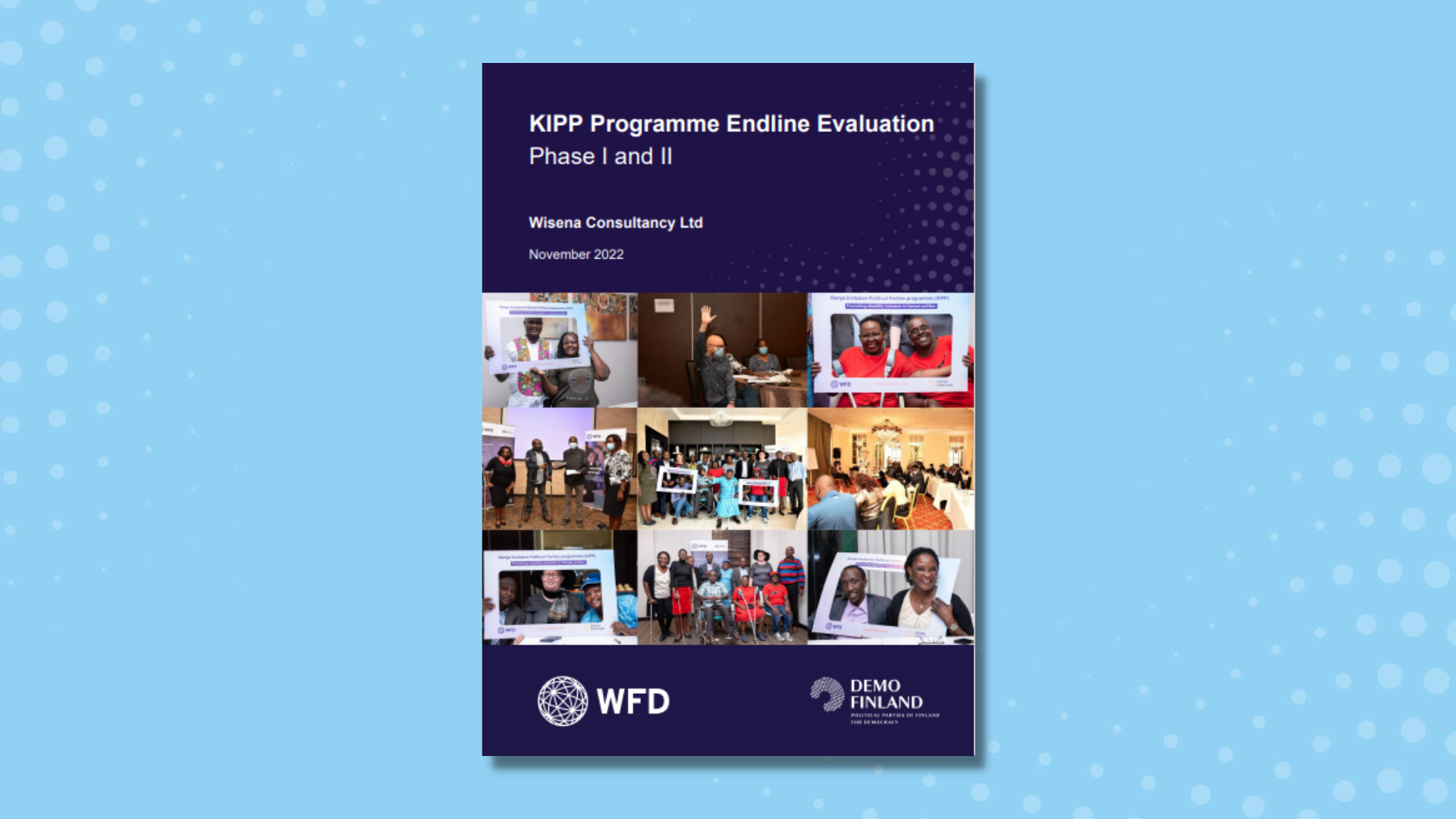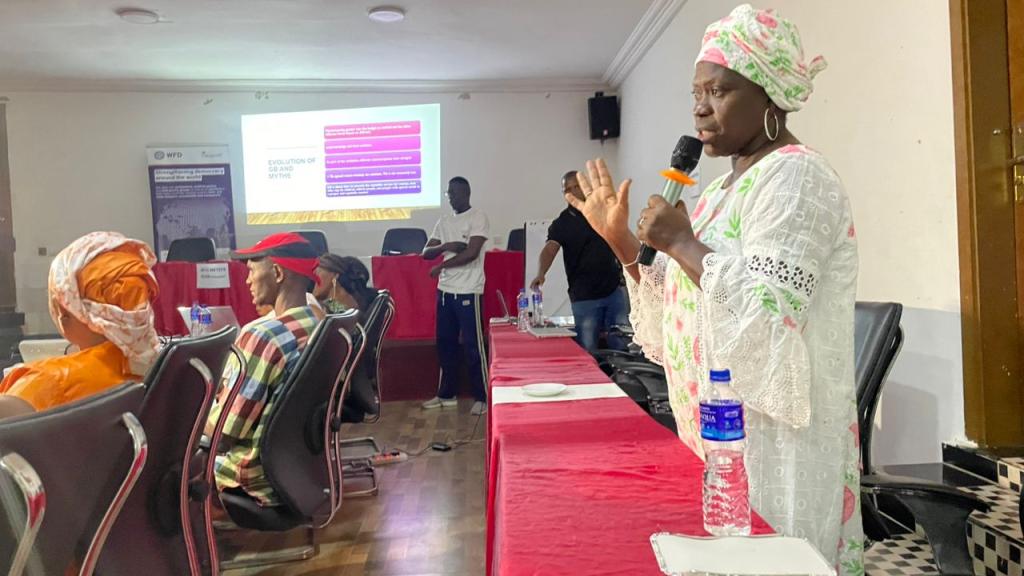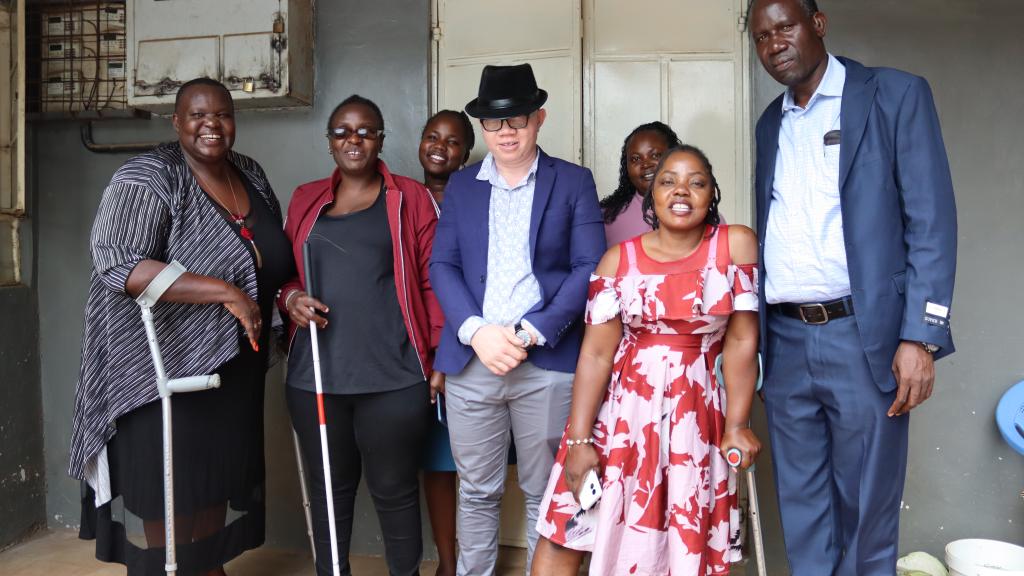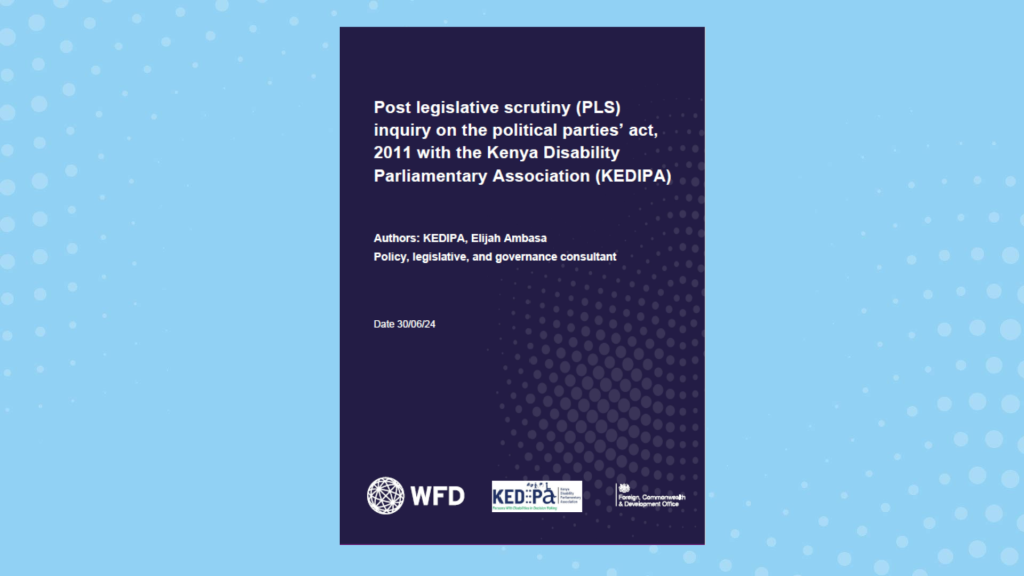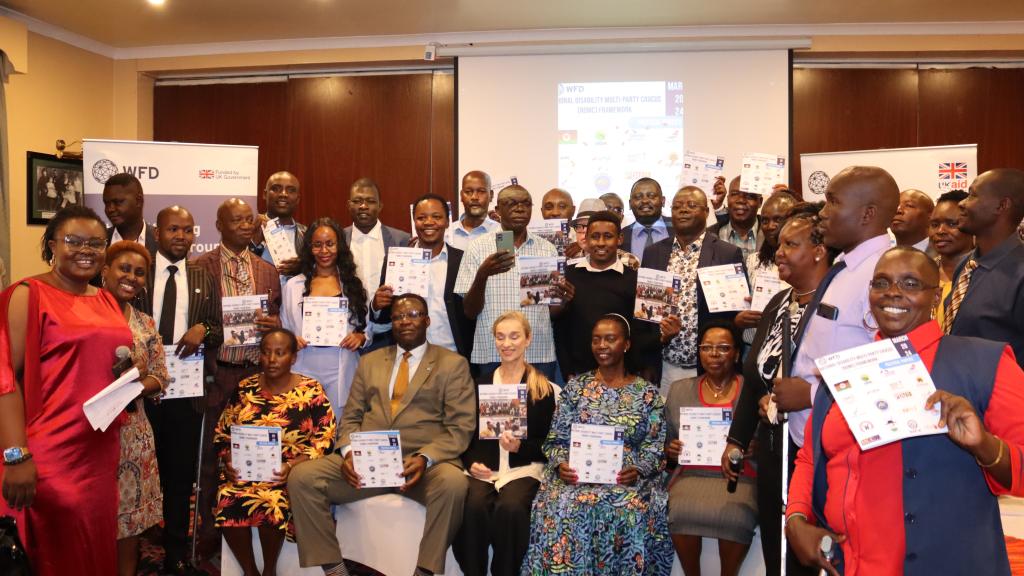The situation before KIPP programme
The situational analysis conducted before KIPP concluded that the inclusion of persons with disabilities in the political parties in Kenya was inadequate and presented a gap concerning the civil and political and democratic rights of persons with disabilities as entrenched in the international and national legal instruments. Political parties were slowly trying to include persons with disabilities in their agenda in terms of policy and practice. The report cited some varied facilitative practices and incentives by different political parties, such as discounted nomination fees, the formation of party disability leagues and the development of inclusive party policies. However, other political parties were grappling with the inclusion partly because of unresponsive internal policies, limited capacity, and lack of awareness among the party leadership, among other barriers.
Opportunities, therefore, existed for structured engagement with political parties towards building inclusive culture and practice among its membership. Such a change required a paradigm shift to achieve intra-party pro-disability agenda and national legal reforms that would address the challenges that limited the participation of persons with disabilities in the political parties. From the legal perspective, the lack or low participation of persons with disabilities in the political parties goes against the principles of non-discrimination propagated by the Convention on the Rights of Persons with Disabilities (CRPD) and the Constitution of Kenya 2010 and other legal instruments. Political parties are vehicles that promote democracy and, therefore, should do so with respect to human rights.
The role of KIPP in addressing the inclusion gaps
KIPP Programme was conceived to address the challenges of systemic discrimination by political parties. KIPP was very timely as political parties were preparing for the 2022 General Election, which is usually a high-stake event for Kenya. The electoral cycle constitutes three phases, including before, during and after elections. The project interventions were tailored to fit within before and during elections. Before elections, political parties were preparing, some of which were legal compliance. The political parties lacked the expertise and knowledge to ensure genuine inclusion and compliance. KIPP provided some of the much-needed internal technical support that significantly contributed to achieving inclusion in their policies, structures, and practices.
At the policy level, KIPP supported the government agencies, for instance, the Office of the Registrar of Political Parties (ORPP), to develop the Minimum Standards, which guided the parties on how to comply regarding the inclusion of persons with disabilities. Broadly, the continued capacity building among the organisations of persons with disabilities (OPDs) resulted in sustained advocacy, which led to some policy and structural reforms among the electoral actors. 13 KIPP Programme Endline Evaluation Therefore, KIPP was a very relevant and timely intervention that contributed significantly to including persons with disabilities in the political parties and the democratic space.
Lessons learned
Here are some of the key lessons learned during the first and second phases of the KIPP programme that would be useful in the next phases
- Multi-stakeholder collaboration and engagement with the duty bearers and right holders creates builds trust and opens an avenue for future engagements. More importantly, it increases opportunities to influence positively and contributes to positive behaviour change and inclusive practice in the political continuum and, ultimately, in the larger society.
- Collaboration, instead of competing, leveraging the strengths of each organisation is more effective in addressing common challenges and is more impactful. Further, working with local organisations creates good relationships, wins trust, and creates an open atmosphere to achieve results.
- Direct engagement among the critical stakeholder groups, including the political parties, OPDs and policy-makers in government institutions) creates trust and mutual relationships among the groups.
- Interventions are best tracked when programming is evidence-based. The situational analysis conducted before the interventions helped shape the interventions and provide a mechanism for tracking progress and reporting results by the donor, implementor and beneficiaries.
- Institutionalisation of disability leagues within political parties is more sustainable than ad hoc party interventions. This points to the need for more resourcing of such structures to achieve their independence and efficiency in achieving their mandate. Beyond being recognised by the political parties, Disability Leagues must be recognised by national legal space to ensure sustainable inclusion.
- MOUs and formal agreements established with parties address the risk of de-prioritising the inclusion agenda. KIPP developed MOUs and agreements with the 13 political parties to ensure they remain committed to including persons with disabilities within their structures. In the second phase, the programme re-engaged and briefed the party leadership on programme expectations and planned activities that potentially prevented the targeted political parties from distraction or deliberately de-prioritising inclusion, especially to concentrate on the elections that would have compromised the programme results.
Conclusion
The KIPP programme significantly strengthened inclusive multiparty democracy in Kenya. At the output level, political parties have become more knowledgeable and, to some extent, implemented inclusive reforms within their policies, structures and processes. Similarly, the OPDs and CSOs have increased their capacity to advocate for political participation and representation by the political parties. Both phases provided a solid foundation that opened engagement with the political parties. Engaging political parties can be complex due to their political and demanding nature. KIPP created a mutual partnership, trust and momentum for continued engagement that, if sustained, can yield more impactful results.
Being an inclusive intervention, it remains a model that can be replicated by other political parties in Kenya and other countries in the quest to promote inclusive democracy. The programme utilised an innovative approach which has yielded not only the planned results but also other unexpected results. The programme was flexible and accommodated innovative ideas that have created an avenue for sustainability. It is hoped that continued interventions will increase its impact by scaling up or altering the high-impact interventions that will be more sustainable.
